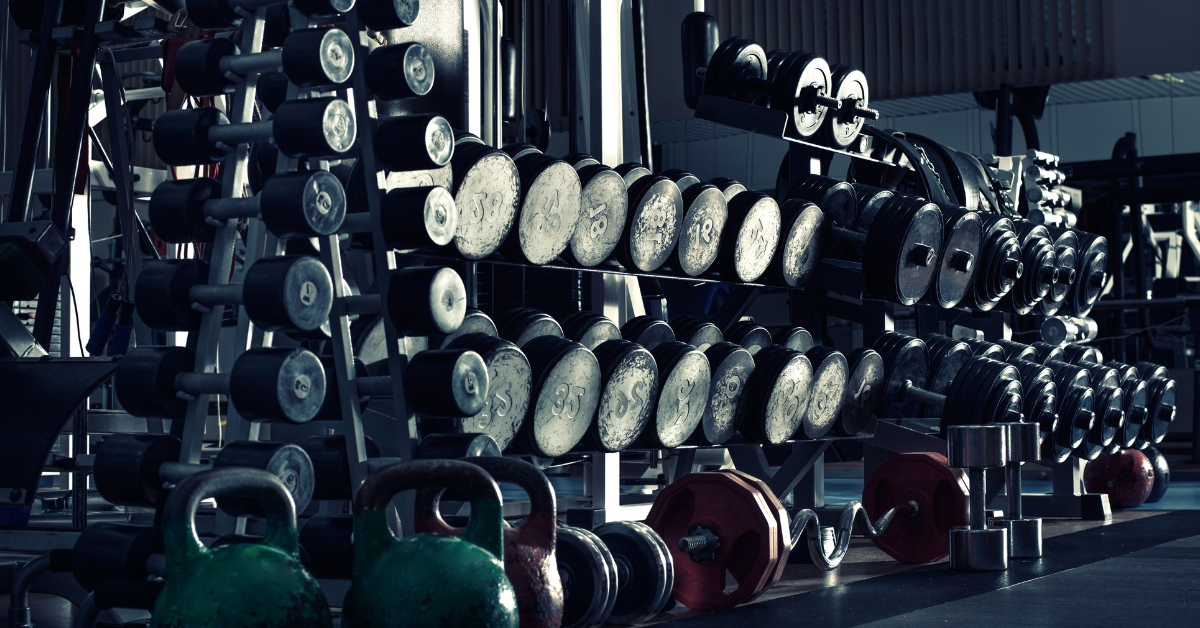How Movement Helped Me Heal from Losing Love, a Dream Job, and Myself
“Just hit the gym.”
We’ve all heard that line—after a breakup, job loss, or one of life’s curveballs. It used to annoy me. Like, how is doing squats supposed to help me get over heartbreak or unemployment? But after life humbled me in ways I never expected, I learned it’s not about the gym fixing your problems—it’s about the gym helping you become strong enough to face them.
Let me explain.
In February 2023, I lost my dream job before I even started. I was part of the first wave of tech layoffs. I hadn’t even walked across the graduation stage for my MBA, and there I was, staring at an email that shattered everything I thought I’d earned. I put years into chasing that job—endless networking events, late-night projects, resume revisions, and an unhealthy amount of self-worth wrapped up in a job title. It felt like the rug was yanked out from under me. I was crushed, embarrassed, and disoriented. But in hindsight, it was the beginning of something I couldn’t have planned—a deeper understanding of who I really am and what success actually means. The job had owned me, and losing it gave me a chance to take my identity back.
But before that came the heartbreak.
In 2018, I met her. She had this captivating smile and a shaved-side hairstyle with an intricate design—unique, magnetic, unforgettable. She moved in after three months, and for a while, it felt like we were building something real. She was kind, compassionate, and intuitive. She saw the parts of me I’d buried deep—my unresolved childhood trauma, my anger, my fear of being vulnerable. She asked me to work on myself. “Try yoga, meditation, even therapy,” she said gently, months before things fell apart. But I didn’t listen. I was stubborn. I thought she’d always be there.
When she left, it wrecked me.
I tried to pretend I was okay, but I wasn’t. I was spiraling—emotionally shut down, angry, numb. That’s when a friend invited me on a run. He was training for a half marathon and figured the movement might help. At the time, I still saw running as punishment. Growing up, it was the go-to consequence for messing up during practice: “Take a lap!” Even on the track team, running never felt like freedom—it felt like penance. But I figured I had nothing to lose, so I laced up.
That first run wasn’t pretty. I was winded, frustrated, and halfway tempted to quit. But something strange happened mid-run. For the first time in weeks, my thoughts slowed down. I could actually breathe. The rhythm of our footsteps, the cold air, the silence between us—it felt like therapy. It wasn’t just movement; it was release.
From there, everything changed. Running became my way of processing pain. It gave me structure when everything else felt chaotic. I started signing up for races—first a 10-miler, then the Marine Corps Marathon. Each finish line wasn’t just a physical accomplishment, it was an emotional breakthrough. During the Broad Street Run in Philly, it rained the whole way. I kept thinking about her—how I missed the feeling of sharing moments like that. Watching couples embrace at the finish line only deepened the ache. But I didn’t stop running. I used that ache as fuel.
Training for the Marine Corps Marathon was a turning point. The long runs, early mornings, and mental walls I had to break through forced me to grow in ways that no job or relationship ever had. Running became my mirror. It reflected my flaws, but also my resilience. It taught me that I didn’t need to be perfect—I just needed to keep showing up.
That’s the real secret about movement. It doesn’t fix your problems. It doesn’t bring her back. It doesn’t put money in your account or rewrite your past. But it does give you clarity. It quiets the noise. It reminds you of what’s still within your control—your breath, your pace, your presence.
Exercise lowers cortisol, helps regulate stress, and boosts dopamine and serotonin. But beyond the science, there’s something sacred about pushing your body and realizing your mind is stronger than your excuses. Whether you’re lifting weights, going for a walk, dancing, hiking, boxing, or practicing yoga—it’s all movement. And movement is healing.
I’ve learned that movement isn’t about chasing perfection—it’s about creating momentum. When life knocks you down, the best thing you can do is move. Not to run away from your problems, but to run through them. With each mile, each rep, each breath, you become a little more grounded. A little more confident. A little more free.
So no—the gym doesn’t solve everything. But it solves enough to get you back on your feet.
And sometimes, that’s all you need.
#GymTherapy #MentalHealthRecovery #RunningAfterBreakup #JobLossHealing #FitnessMotivation #MensWellness #AnxietyRelief #MovementIsMedicine #RedefiningSuccess #BreakthroughStories

